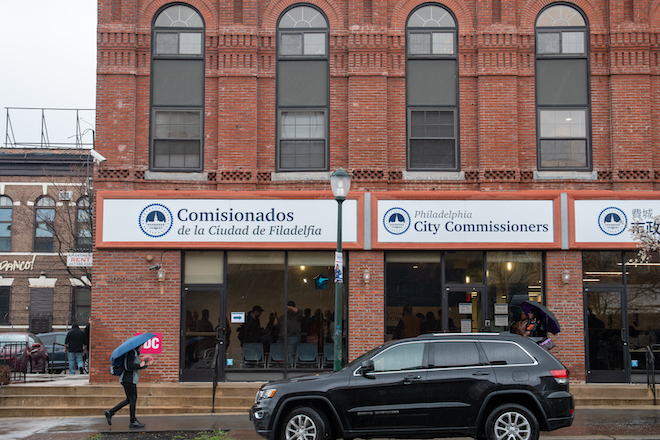Ah, Philadelphia. Why must you plague us modern folk so with your weirdass Horn & Hardart’s coffee can method of ballot placement, feudalistic or some such old-timey practice of councilmanic prerogative, and overall cryptic names for fairly straightforward jobs? Philly’s City Commissioners land in the last category. Google “city commissioner,” and you’ll find a bunch of things that Philly’s commissioners are not. Here’s what they are.
First, a little history: The office of the Philadelphia City Commissioners began in 1854 when Philadelphia, then a separate city and county, consolidated under one government. From then on, whereas pretty much everyone else in city government reported to the mayor or City Council, the Commissioners, while operating under the City’s constitution-like Home Rule Charter, are still considered Philadelphia county officials.
What they do: Run elections and voter registration for our fair city, right down to making the ballots. Simple as that. Sometimes. (See below.)
How we choose them: Every four years — the same cycles we elect a mayor and City Council — Philadelphians vote for three commissioners, including one member of a minority party, which, these days, means a non-Democrat.
The real job of a city commissioner
That Philadelphians vote our commissioners into office is unusual. In most cities and states, including PA, elected leaders appoint top election officials.
Although Philly’s system has been in place more than 150 years, it has not always worked … well. Critics have argued that electing election officials has allowed at times spectacularly incompetent commissioners to take office. In 2016, The Philadelphia Citizen went so far as to put out a petition to abolish the City Commissioners office altogether, and replace it with a much more understandably named “election office” with a mayoral appointee at the helm.
Then came 2020.
Your remember the 2020 election
City Commissioner Al Schmidt, a Republican, joined Democratic Commissioners Omar Sabir and chair Lisa Deeley in overseeing our first mid-Covid presidential election, when voting transitioned from in-person to by mail, and a few other notable things happened in Philadelphia. Remember the dancing mailboxes outside the Convention Center, the QAnon fanatics who drove up from Virginia packing heat in their parked pickup? What about the national-headline-grabbing threats Schmidt and his family endured for pushing back against Trump’s and his party’s election lies?
At the dawn of an era of election denial and conspiracy theories, the jobs of city commissioners in a very blue city in a purple swing state suddenly became fraught, even dangerous. And, for some, these new times changed views on how Philly chooses our city commissioners. The fact that our election officials were both duly elected and bipartisan combatted the view that Philly is an unjustly one-party town, and could have prevented further, more extreme election lie-fueled protests at home and elsewhere.
The upheaval took its toll: Schmidt cited the stress from the 2020 election as the reason he would not return to office. On the other hand, he’s arguably much more visible today, as Governor Josh Shapiro’s secretary of state, the Commonwealth’s top appointee overseeing PA elections.
The other problem with running elections in Philadelphia
Of course, there’s still the more intractable problem of our city’s extra-crap low voter turnout. In the 2023 mayoral election, just over 31 percent of registered Philadelphia voters bothered to vote — a rate that’s half of our already shameful national voter turnout rate during a presidential election. To some, a Philadelphia city commissioner’s job might seem impossible. (Maybe they should earn an actual commission for getting people to vote?)
To turn up turnout and make voting easier, in March 2024, the three commissioners — whom observers have called out in 2024 for their public disagreements on protocol — opened their first of 10 planned permanent election satellite offices across the city, taking their services into the neighborhoods. The City referred to the first site as a “one-stop shop” where you can register to vote, update your voter registration and both request and submit your mail-in ballot — all with the help of staff from the County Board of Elections, another term that definitely needs updating.
The satellite’s address: 4029 Market Street.

![]() YOUR CITY DEFINED SOME MORE
YOUR CITY DEFINED SOME MORE




